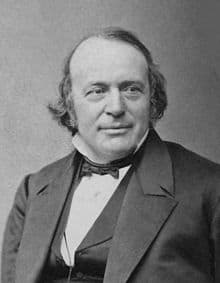
Louis Agassiz
Jean Louis Rodolphe Agassiz ( AG-ə-see; French: [aɡasi]) FRS (For) FRSE (May 28, 1807 – December 14, 1873) was a Swiss-born American biologist and geologist who is recognized as a scholar of Earth’s natural history.
Spending his early life in Switzerland, he received a doctor of philosophy and a medical degree at Erlangen and Munich, respectively. After studying with Georges Cuvier and Alexander von Humboldt in Paris, Agassiz was appointed professor of natural history at the University of Neuchâtel. He emigrated to the United States in 1847 after he visited Harvard University. He went on to become professor of zoology and geology at Harvard, to head its Lawrence Scientific School, and to found its Museum of Comparative Zoology.
Agassiz is known for his regimen of observational data gathering and analysis. He made vast institutional and scientific contributions to zoology, geology, and related areas, including writing multivolume research books running to thousands of pages. He is particularly known for his contributions to ichthyological classification, including of extinct species such as megalodon, and to the study of geological history, including the founding of glaciology.
In the 20th and 21st centuries, his resistance to Darwinian evolution, his belief in creationism and the scientific racism implicit in his writings on human polygenism have tarnished his reputation and led to controversies over his legacy.
Lists containing Louis Agassiz :
383 Influential People who changed the world

The world is filled with thousands of great people who have changed the world. It is not possible to list the most influential men and women in human history, but this list is an attempt to explore some of the most influential people of all time that one must know about. It can be hard…
